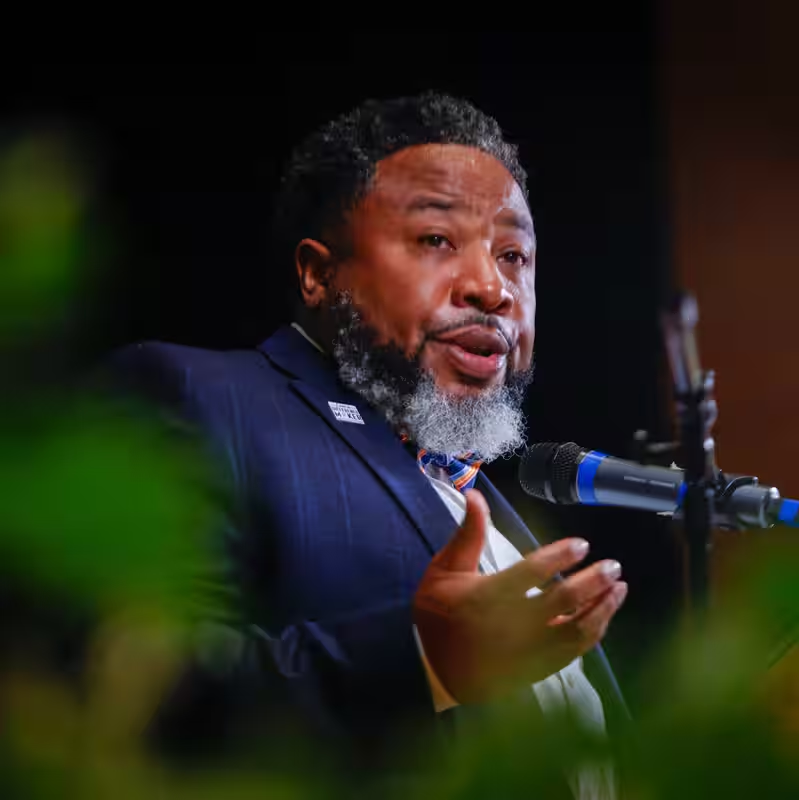Table of Contents
- From Hero to Indicted
- Details of the Alleged Scheme
- How the Fraud Was Uncovered
- Impact on Students and Trust
- Current Status in Georgia
- Broader Implications for School Leadership
- Sources
From Hero to Indicted
Dr. Marcus Ellison was once celebrated as a transformative leader in education—especially for his work uplifting students of color in under-resourced communities. Appointed superintendent of DeKalb County School District in Georgia in 2023, he was hailed as a visionary who prioritized equity, academic recovery, and teacher retention.
But now, that reputation is under siege. Federal prosecutors in Illinois have indicted Ellison for allegedly orchestrating a multi-year kickback scheme while serving as superintendent of a suburban Chicago school district—stealing tens of thousands of dollars meant for public education.
Details of the Alleged Scheme
According to the indictment unsealed October 10, 2025, Ellison—while leading an unnamed Illinois district between 2019 and 2022—awarded inflated contracts to favored vendors for services like curriculum development, IT support, and professional training.
In return, prosecutors allege, those vendors funneled a portion of the payments back to Ellison through shell companies and personal checks disguised as “consulting fees.” The total amount diverted is estimated at over $275,000.
“Public school funds are sacred,” said U.S. Attorney Erin Lopez in a statement. “When a superintendent betrays that trust for personal gain, it’s not just theft—it’s a direct harm to students who lose resources they desperately need.”
How the Fraud Was Uncovered
The investigation began after an internal audit flagged irregularities in vendor payments. Whistleblowers within the district’s finance department later provided documents showing repeated payments to companies with no verifiable deliverables.
FBI agents executed search warrants in 2024, seizing emails, bank records, and contract files. Digital forensics revealed that Ellison maintained private email accounts to coordinate with vendors—bypassing official district channels.
Impact on Students and Trust
The Illinois district, which serves a predominantly low-income student population, had already faced budget shortfalls. The stolen funds could have supported:
- After-school tutoring programs
- Mental health counselors
- Classroom technology upgrades
- Teacher stipends for high-need subjects
Community members expressed shock and betrayal. “We trusted him to fight for our kids,” said one parent at a recent school board meeting. “Now we wonder how much of his ‘equity agenda’ was just a cover.”
Current Status in Georgia
Ellison has not been removed from his post in DeKalb County, though the district confirmed it is “reviewing the situation.” In a brief statement, he denied wrongdoing, calling the charges “politically motivated” and vowing to “vigorously defend my integrity.”
Georgia’s State Board of Education has launched a parallel ethics review. If convicted, Ellison could face up to 20 years in federal prison and permanent disqualification from public office.
Broader Implications for School Leadership
This case highlights vulnerabilities in school district oversight—especially in mid-sized districts with limited internal audit capacity. Experts urge:
- Stronger vendor vetting protocols
- Mandatory financial disclosure for superintendents
- Independent ethics commissions at the state level
- Whistleblower protections for staff
“Accountability can’t be optional in public education,” said Dr. Lena Torres, an education policy professor at Emory University. “One bad actor shouldn’t define the field—but it should force systemic reform.”
Sources
Superintendent Accused of Stealing Thousands From Illinois School District – The New York Times
U.S. Attorney’s Office, Northern District of Illinois – Press Releases




